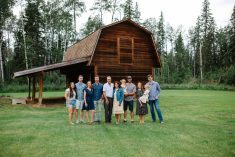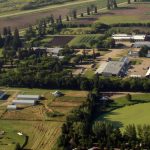Peer groups are quickly taking on a new life in Canadian agriculture. But these are different groups today, about as different from the coffee gang at your nearby Tim’s as the NHL is from the local old-timers’ league.
There are still multiple types of these groups, focusing on financial or business management, perhaps, or succession, human resources, soil health or any of a number of other areas, But now there are also what you might call multiple group personalities.
What’s most important isn’t just the group’s fit for you and what you can expect from it, but also your fit with the group and what the other farmers in the group can expect you to bring to them.
Read Also

Part 4: Financial disagreements between farm siblings
A six-part series that looks at the challenges sibling conflict can have on the farm business and family business relationships.
At its core, today’s peer group revival is all about professional development. Yes, they discuss specific farm and production topics, but the objective is a better and more effective you.
That’s why today’s peer groups are so much stronger. But this also creates a serious challenge. After all, how can you really judge if it’s worth your valuable time to join a peer group?
And, equally important, how do you find the peer group that’s right for you?

“I like to say that peer groups are right for every farmer, but not every farmer is right for a peer group,” says Sara Chambers, peer group practice leader with Backswath Management Inc. which organizes and facilitates a number of peer groups that have a total of over 100 members across Canada.“
“If you’re at a place in your farming career where you’re looking to grow, not necessarily in acres or herd size, but in knowledge and understanding and to better your business acumen, and you are open to hearing from others and you’re comfortable sharing what you’ve learned so far in your career, you should definitely join a peer group.” she says.
Jay Peterson already knew the value of peer groups when he was invited to join one organized by Backswath a year ago. He had been involved in a benchmarking peer group shortly after graduating from university. That group had been run by one of his former professors and compared farm operations in Canada and Germany.

Later, Peterson, who farms around Frontier, Sask., hesitated when asked to join a new management-focused group a couple of years ago, and he thinks he was right to give it a pass. If you’re thinking of joining a group, he says, make sure you can commit to it.
“That wasn’t a great time for me to join a peer group, not because I didn’t want to, but because I wanted to be able to give it my full attention and be a valued member,” Peterson says.
Now, the timing is more propitious. “With how our farm has been progressing over the last couple of years, and the way I see things going, it’s now the right time to join.”
Know what you want
Farmers looking for a peer group need to know what they hope to get from it and then find out if the group aligns with their objectives.
“It’s important for anyone interested in joining a peer group to consider what it is they’re looking for and take the time to understand if they will get that from this experience,” agrees Peter Chapman who facilitates peer groups in the food and beverage sector for SKU Food Inc. in Nova Scotia.
“Peer groups are not about surrounding yourself with people who will tell you how fantastic a farmer you are,” Chapman says. “You need to be prepared to be challenged and held accountable, which is not something everyone is interested in.”
Chambers says that most farmers join a peer group to effectively expand their advisory network. “Having a farmer advisory network is really the ‘X’ factor,” she says. “You’re tapping into knowledge from people who have experienced the same things as you first hand and have no motivation for providing their advice other than advancing the group overall.”
Today’s peer groups, by the way, are configued so the farm members won’t be from the same geographic area and aren’t in competition with each other in any way. That’s something most farmers looking for a peer group see as essential.
“I was looking for a group where I could talk about what I have got going on,” says Chris Halls, who farms a mixed cattle, hog and grain farm two hours southeast of Fargo, Minnesota, and is a member of a Backswath Peer group. “I am looking for ideas to help grow our operation to the next level, and the people in the group are far enough away that I don’t have to worry about competing.”
Halls found his peer group through an internet search. And although he also looked at some in the U.S., it was a Canadian farm management peer group offered by Backswath that he eventually chose because it looked like the Canadian group would be a better mix.
“I was surprised how open it was and everything was talked about. Nobody really held anything back,” he says. “You can present an idea and get 10 different honest opinions because those people have no interest, they are not going to benefit themselves by it.”
Give peer groups a fair chance
Initially, peer group members often sign up because they are seeking information. “They might come for insights into the marketplace, but the reason they continue to come back is different,” Chapman says. “They come back because they develop a camaraderie with the others in the group and it becomes about them sharing information with each other that’s valuable to them.”
But it’s important to give the peer group they choose a fair chance because it can sometimes take time to get comfortable with the format and with the people involved.
“I had some groups that were going into their second year and a couple of new groups,” Chapman says. “The established group just dove in and asked each other what happened with this, or did you get that, or last month you talked about this, so how’s that going, whereas with the new group I had to bring that out and help get people sharing and talking.”
What does a peer group offer?
Everyone will get something different from a peer group. “It’s important to enjoy the camaraderie and the community that you are creating with these other people,” Peterson says. “You are going to talk about some heavy things and some fun things, and it’s important to come away with a net positive.”
Peterson values his peer group because he farms alone with his dad, who is 71. He knows it’s all too easy for people to stay in their own bubble and not stretch or challenge themselves.
“I was worried about getting tunnel vision,” Peterson says. “Being able to go into a supportive group and be challenged, but be able to take that in a productive way, is valuable.”
Peterson has also found that the people in the group end up talking about many things over and above the business management and succession issues that are its main focus.
“The business environment has become more aggressive, and mental health, stress and anxiety have become a major thing for farmers over the last five years,” Peterson says. “We talk about how we can navigate those things. Human resources is another big area that is more at the forefront of everyone’s thinking now.”
Begin by leaving your ego at the door, Peterson advises.
It also takes a commitment that you will participate. “You are going into a room of successful, respected individuals and they are going to have their opinions,” he says. “You can’t just sit back either, you have to speak up to be a part of the group. But these people are going to challenge you because they all have different life experiences. They have all seen different things work in their operations and other operations. It’s these positive and negative experiences that drive your career. You have to be willing to have questions asked about your experiences.”
Chapman says the groups that he has led look forward to time away from their day-to-day tasks.
“It gives them some time to recharge and get motivated again about their business,” he says. “It’s a chance for them to decompress and talk to their peers.”
How to find your peer group
Rachel Christensen is the third generation to farm the family’s 22,000-acre grain, cow/calf and leafcutter bee operation between Saskatoon and Yorkton. Now she is also involved in a peer group specifically for emerging young farmers.
Her signing up was influenced by relatives who’d both had good experiences with peer groups themselves. “It stemmed from the success that my aunt and uncle had in their peer group, but it also came from the need to educate our incoming generation and get connected in the industry,” she says.
Christensen’s advice for finding a peer group is to definitely look beyond your neighbourhood and find people farther away to connect with, perhaps via social media or at events or conferences during the winter.
“Expand where you are looking because the time you put into finding a peer group, if you are interested, is definitely worth it. It’s not this awful grind away at home to try and get your homework done. You work on something and then you get to discuss it with other people who have great ideas and great input,” she says.
Christensen’s peer group is heavily focused on succession, which is a big discussion on her farm. Because Christensen’s parents don’t farm — she farms with her grandparents and various aunts and uncles — she finds the topics she discusses with her peers in the group provide ideas into how to start the conversations she needs to have with the current farm owners and managers so she can better prepare for an ownership role herself one day.
“We can sit down and talk… it’s given me better insight into the financial and human resources side, not just the operations,” Christensen says. “It’s just starting those conversations because it’s sometimes tough to know what our next generation needs to know. I come in and ask very specific questions. That prompts discussion. Our Emerging Young Managers Peer group has more of a curriculum that other peer groups may not have.”
There are many different providers of agriculture peer groups including consultants, management companies, financial institutions and farmer organizations. A Google search will bring up different options, or farmers can ask someone they know and trust in their own network, such as neighbours, professional advisors or consultants, if they know of and can recommend any peer group providers.
Asking your peers is likely the best first step to find a peer group or similar resources, says Peter Chapman of SKU Food. “If you’re looking for something that is an opportunity to get together with some of your peers, then ask them if they’re doing anything like this,” he says.
Industry suppliers can also be another place where peer groups might be getting formed. “Suppliers like an input company or one of the big ag companies, if they are trying to bring value and differentiate their offering, may be doing some of these kinds of groups,” Chapman says.
Local or federal government offices are another source of information as many people working in their agriculture or economic development departments are aware of groups that are out there.
Going to agricultural conferences or events is another good avenue because the people organizing peer groups are often present and are happy to discuss how their groups work, or you may just run into another farmer who is a member of a group and can tell you all about their experiences.
Peterson’s peer groups have always found him so he hasn’t had to actively seek one out, but he does have a fairly well-established social media presence and says that as long as you are prepared to do some basic research, you can definitely find like-minded people who could offer group suggestions.
“Social media is great but you have to filter down into it as there are a lot of great people involved in agricultural social media, but it can be a super-negative place as well,” he says. “Through the connections I have made, and that I have filtered out over the years, I hear about these kinds of opportunities because over time you find the people who are leading-edge. Their thinking is more progressive.”
















